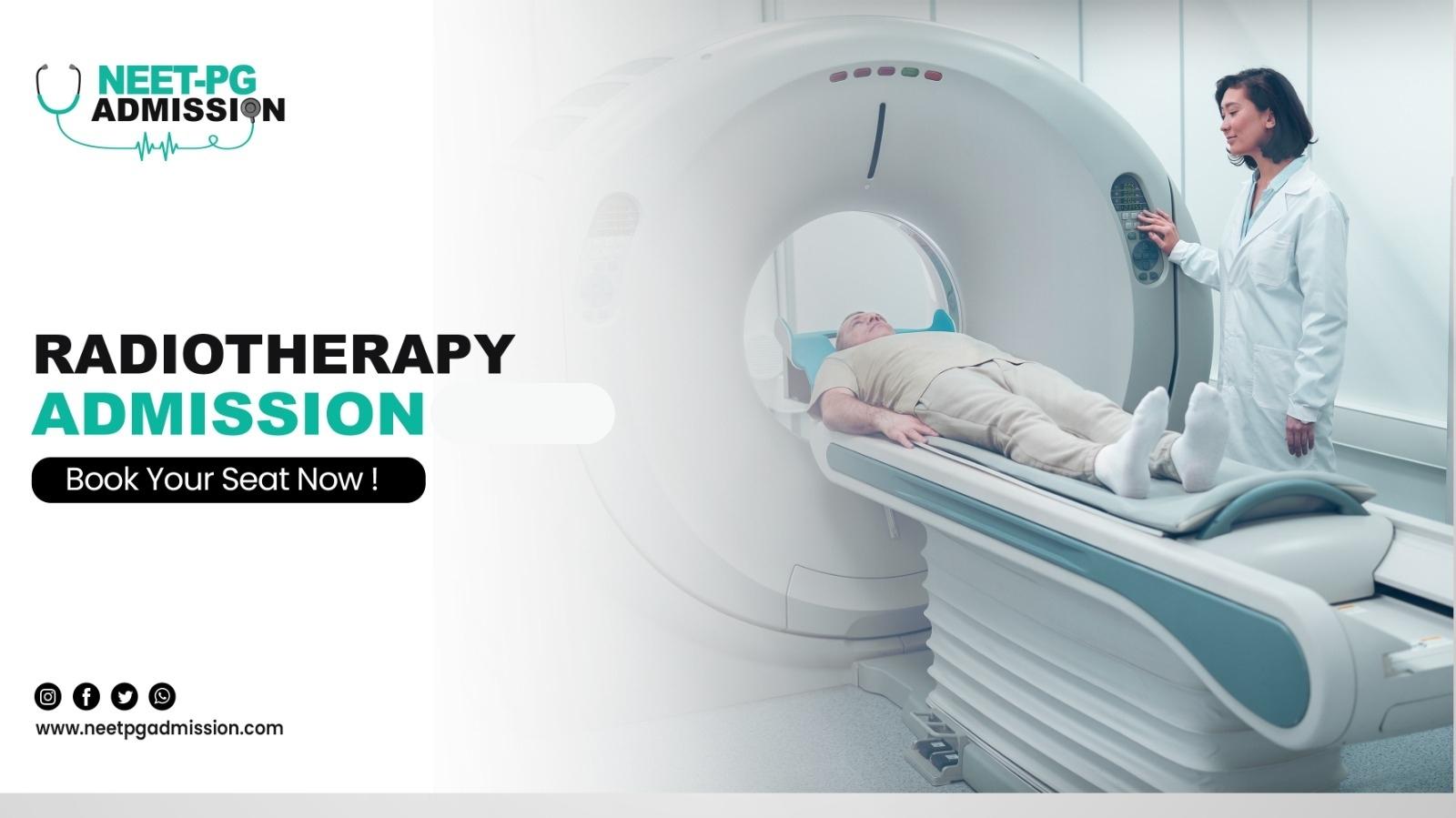In the realm of medical science, the battle against cancer is one that requires unwavering dedication, cutting-edge techniques, and compassionate care. Within this landscape, the field of MD Radiotherapy (Oncology) emerges as a beacon of hope, offering a specialized pathway for medical professionals to contribute significantly to the treatment and management of cancer. This comprehensive guide explores the nuances of MD Radiotherapy, shedding light on its course structure, admission requirements, best universities, program duration, fees, and the promising career prospects it holds.

Basic Details
| Term | Definition |
|---|---|
| Course Name | Doctor of Medicine in Radiotherapy |
| Duration | 3 Years |
| Eligibility | MBBS with 50% marks from a recognized medical college. |
| Admission Process | Based on the merit of the entrance examination and counseling |
| Course Fee | 50k-14 lakh annually |
| Average starting Salary | 8-12 LPA |
| Job Roles | Radiologist, Radiation Oncologist, Medical Physicist, Radiation Therapist, etc. |
Why to Study Oncology
Studying oncology offers a range of compelling reasons to pursue this field. It allows individuals to have a direct impact on patients’ lives, helping them navigate the challenges of cancer diagnosis and treatment. The field contributes to medical advancements, leading to improved therapies and diagnostic tools. Oncology provides diverse career opportunities in medical, surgical, and radiation oncology, along with research. It has a global health impact, addressing cancer’s worldwide prevalence and improving healthcare outcomes globally. The dynamic nature of cancer research fosters continuous learning and innovation. Collaborative, multidisciplinary care is integral to oncology, promoting holistic patient well-being. Personal fulfillment is derived from aiding patients through their cancer journey and forming meaningful relationships. Lastly, studying oncology presents the chance to address health disparities, ensuring equal access to quality care for all individuals.
Eligibility Criteria
The admission to MD Oncology in India is done through a merit-based system. The seats are allocated to the candidates based on their NEET PG score and the marks obtained in the qualifying examination.
- Educational Qualification: The candidate must have passed MBBS from a recognized medical college with 50% marks or equivalent grade.
- Age Limit: The candidate must have attained the age of 21 years on or before the 1st day of July of the year of admission.
- National Eligibility cum Entrance Test (NEET) PG: The candidate must have qualified NEET PG with a minimum of 50% marks in the General category and 40% marks in the reserved category.
- Experience: The candidate must have completed one year of compulsory internship after MBBS.
In addition to the above, the following documents are required for admission to MD Oncology in India:
- Application Form: The candidate must fill the application form in the prescribed format and submit it along with the required documents.
- Marks Transcript: The candidate must submit the marks transcript of MBBS and NEET PG.
- Character Certificate: The candidate must submit a character certificate from the Principal of the medical college where he/she has completed MBBS.
- Medical Certificate: The candidate must submit a medical certificate from a registered medical practitioner stating that he/she is physically and mentally fit to pursue MD Oncology.
How to Apply
The application process for MD Oncology in India is done in the general steps involved in the application process are as follows:
- Check the eligibility criteria: The first step is to check the eligibility criteria for MD Oncology in the institute you wish to apply to. The eligibility criteria are usually mentioned on the institute’s website.
- Download the application form: Once you have checked the eligibility criteria, you can download the application form from the institute’s website.
- Fill the application form: The application form must be filled in the prescribed format and submitted along with the required documents.
- Pay the application fee: The application fee must be paid in the prescribed manner.
- Submit the application form: The application form must be submitted along with the required documents to the institute by the due date.
The application process for MD Oncology in India is usually done online. However, some institutes may also accept offline applications.

Oncology FAQ
- What are the different specialties within oncology?
Oncology comprises medical oncology (chemotherapy, targeted therapy), surgical oncology (surgery to remove tumors), and radiation oncology (radiation therapy).
- How can I become an oncologist in India?
To become an oncologist in India, you typically need to complete an MBBS degree, followed by a specialization in oncology, such as an MD (Doctor of Medicine) or DM (Doctorate of Medicine) degree. Admission processes vary by institution and often require qualifying entrance exams like NEET PG.
- What are the eligibility criteria for MD Oncology in India?
Generally, eligibility criteria include completion of MBBS, internship, registration with a medical council, qualifying entrance exam (e.g., NEET PG), and meeting minimum marks requirements.
- Can international students pursue oncology programs in India?
Yes, some medical colleges and universities in India may admit international students to oncology programs. However, eligibility criteria, admission procedures, and seat availability may vary.
- What is the future of oncology in India?
The future of oncology in India looks promising with ongoing research, technological advancements, and an increasing emphasis on personalized and targeted therapies.
